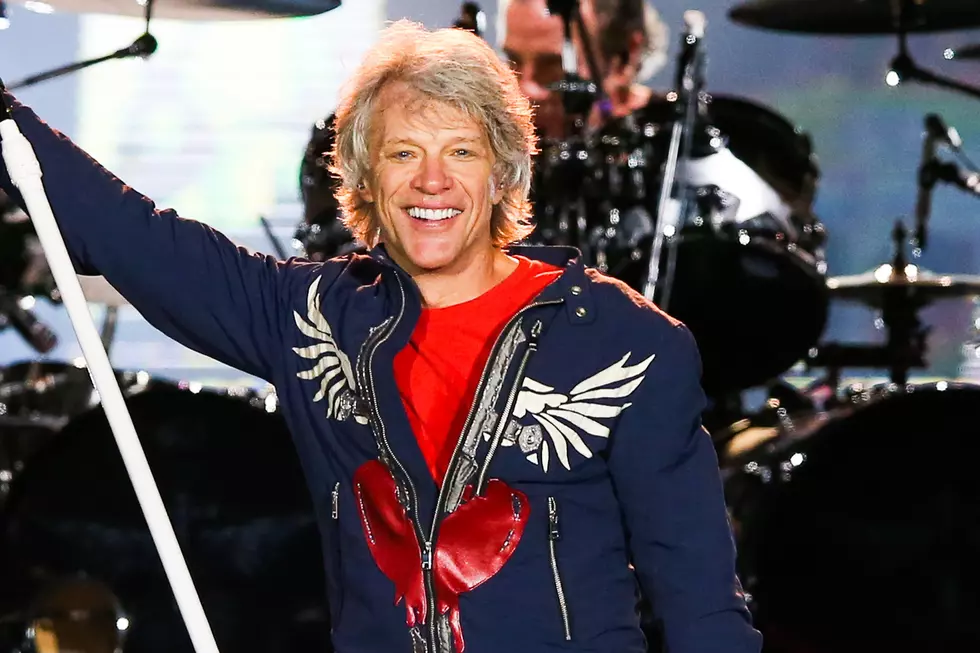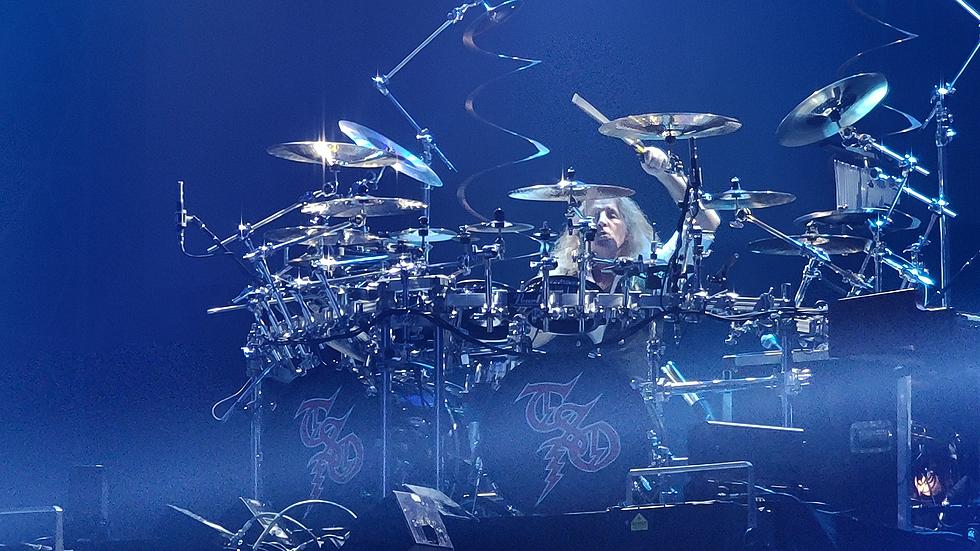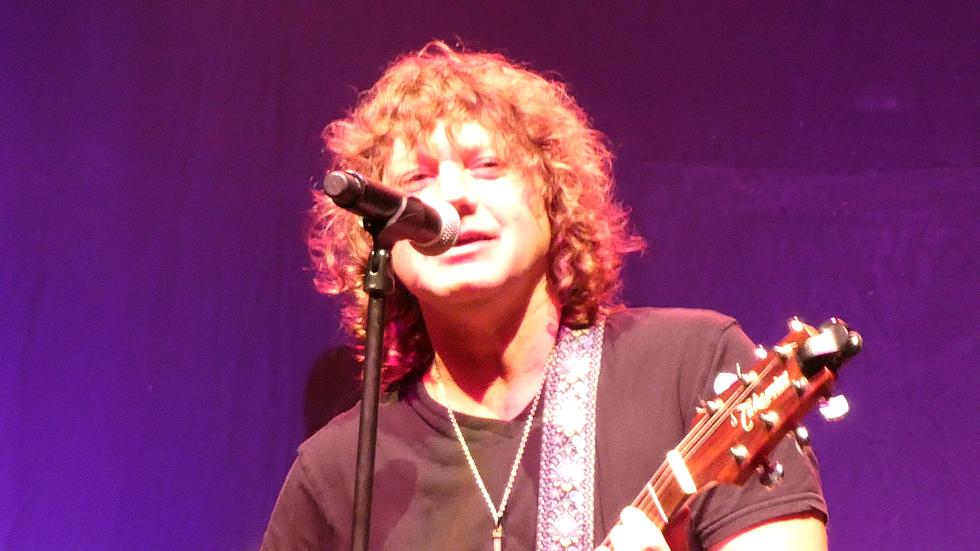
How the Events of 2020 Changed Bon Jovi’s ‘2020’ Album: Interview
In March 2019, Bon Jovi headed to Nashville with a collection of songs and an album title: 2020. Jon Bon Jovi figured the title would be cheeky, great for a bumper sticker or T-shirt. But 2020 turned out to be a hell of year, and 2020 evolved into the most thoughtful, topical and passionate LP the band has ever released.
The Rock & Roll Hall of Fame inductee has never dug as deep into the American experience as he does on 2020. The recently released album features songs about the COVID-19 crisis (“Do What You Can”), veterans struggling with post-traumatic stress disorder (“Unbroken”), politics driving divisions (“Blood in the Water”), gun violence (“Lower the Flag”) and the killing of George Floyd (“American Reckoning”).
Jon Bon Jovi spoke to UCR about wanting to bear witness to history and to relate to listeners what's happening in the streets of cities and small towns across the country.
You had 2020 pretty much wrapped up with a tour in place, then COVID hit. How did tour plans and the album release change because of lockdown?
When the lockdown happened, I canceled the tour outright because, in my eyes, the idea of postponing a tour and having a promoter hold on to the money for a year or 18 months [didn’t work]. I thought people were going to need money for rent and credit cards. Promoters don't need to be holding onto that money for a year. It was pretty evident that if we put a record out in March, April or May that people's attention was going to be elsewhere. It was common sense to postpone the release of the record.
But you didn’t just postpone the record, you swapped out songs. You added “Do What You Can” and then “American Reckoning” following the death of George Floyd, and the tone of the record shifted some. How did “American Reckoning” go from idea to song?
During the lockdown, I was watching the morning news and I was so taken with the death of George Floyd and his friend talking about him dying and calling out for his mom. My eyes welled up. I went and I worked very hard on “American Reckoning,” and then I realized I could take two songs off the record and really have a different understanding of what 2020 meant as a piece of art, as my presentation to the world.
Watch the Video for Bon Jovi's 'American Reckoning'
Have you ever written songs like this before? Have you ever seen something in the world that bothered you and immediately responded to it? I think for a lot Bon Jovi fans, some of these tracks will feel like something new from you.
I think I have written like this, but as an innocent 21-year-old when I wrote “Runaway” [Bon Jovi’s breakout hit in 1984]. When I was lucky enough to get off the bus and walk 15 blocks to the recording studio, the other kids stayed in the bus station or worked the streets around there. So there was a socially conscious song lyrically, “She's a little runaway” and “See you out on the streets.” Now, I was 21, so it was a much more innocent lyric, but you can't completely say I had no knowledge of what was going on around me.
You also came out of a more innocent time and place in America.
The difference between me and Bono growing up in Dublin is I didn't have the Orangemen walking through the streets in July. We were living in suburban New Jersey and it wasn't too bad. In fact, it was pretty good.
How was the New Jersey you grew up in different from the world that your four kids have grown up in?
When I was born, John Kennedy was the president and he was telling my parents their kids could go to the moon. And when I was of age, Ronald Reagan was the president saying, “Rah rah, we should have two cars in every driveway, and isn't America wonderful?” I grew up in a different viewpoint - one of optimism and big dreams. My kids grew up at a time when their peers were wondering if the world was going to catch on fire or flood. My hope, my prayer, is that my kids' generation is the one that says "enough" - that says, “We're going to be the innovators, the creators, the ones who look past silly differences like color.” I think they're going to be the ones to do that.
When you were a kid, nobody was worried about school shootings, especially in suburban New Jersey. But you have four kids who have all grown up and gone to school during the epidemic of mass shootings. How did you write “Lower the Flag,” which directly addresses how bad the epidemic is.
That song came to me on a weekend when I went to bed knowing about [the Aug. 3, 2019, shooting at a Walmart in] El Paso and was moved by it. When I woke up in the morning, there was a shooting in Dayton, Ohio, and I thought, "No no no, it was in El Paso, I went to bed thinking of El Paso." I came to find out there was another one just in the time while I was sleeping. And if you remember the summer of ‘19, they were coming often. Orlando, El Paso, Vegas - they all seem to be back-to-back-to-back. And the story is between sports and the weather on the news, and it kind of moved me in such a way that we were becoming numb to it. People have empathy, but they could turn off the channel and get on with their lives and not have to address it. But having been in New Jersey for Hurricane Sandy and 9/11, you know when tragedy hits in your backyard, you're unable to turn off the channel because it's around you 24/7.
“Blood in the Water” speaks to our age of angry, cruel politics. What are your hopes, not just for the election, but for the tone of politics in the future?
It's a scary time in America because of this division and derision. First and foremost, let's say that 40 percent of Americans didn't vote [in 2016], which is just wrong. We have the ability to have our voices heard. Whoever you are, we are all equal and your vote really does matter. Whoever you want in that seat, you can have in that seat, go and pick them. With that said, regardless of who's in, the only thing that I wish would happen is healing, because I'm afraid right now. Families are divided, neighbors and neighborhoods are divided. When one of the candidates says, “That's a blue state. I'm turning my back on it” or “That's a red state, I'll never get elected there.” Christ, how's that going to endear you to anybody? You got to go out and say, “We're all in this together.” That's my hope. That's my only hope.
Watch the Video for Bon Jovi's 'Blood in the Water'
The songs on 2020 are good examples of how your priorities have changed as you’ve grown up. You’ve become more engaged in social and economic issues. You have plenty of success, you could just sit back and not do any of this charity work.
I'm not that cliche, I never was and I refuse to be now. When we started the Soul Foundation some 15 years ago, it wasn't what rock stars did to endear themselves to their audience. We started that Foundation because one night, looking out of a hotel room, I saw a man sleeping on the grate to keep warm outside of City Hall in Philadelphia, and I said to my best friend, who was born and raised there, “You've got to find me someone working on homelessness issues that can give me some advice on how I can help.” Little did I know that the Michael Jordan of the homeless issue, Sister Mary Scullion and Project Home, were based in Philly. Everything I learned I learned from Sister Mary, and now we have built nearly 1,000 units of affordable housing and we have three JBJ Soul Kitchens. I worked at, and I got a hernia operation out of working at [Laughs], this food bank we funded. This journey has been genuine and it's been long.
Now that the album is out, have you thought about, when it’s safe to go back on the road, how these new songs will mix into a set list of your old hits?
If it was up to me I'd have all 10 songs in the show. [Laughs] My audience has been so wonderful and they know that they are always going to hear five or six songs off of a new record. And obviously I want to play “Living on a Prayer” and “Wanted Dead or Alive” every night, but my fans are accepting of the new records. And while they may not be on Top 40 radio, the albums still always come in at No. 1. We've been blessed to stay pretty current for a kind of classic, vintage band. We are in that rarefied air with a handful of guys that I always looked up to who still make No. 1 records and want to write new songs.
Have you thought about doing a few theaters and doing all songs from 2020 in 2021?
That was my intention. With the last album in 2016 [This House Is Not for Sale], I did a night on Broadway, a night in the West End, a night in Toronto. We did a bunch of theaters for one night only and played the album in its entirety and I could tell the story of the record. That was intended for this one because I enjoyed it so much.
How have you worked to get the album out there when you can’t tour?
An opportunity arose a month ago to do the iHeartRadio Music Festival. And normally I would have said, “Thanks, I appreciate the support, but not this time," but said, “Wait a minute, you're going to take us to a television studio and record just us doing two songs for your show.” They said yes and I said, “Can we have the studio when you're done?” They said yes, so I told the band to make sure it knew the entire new album because we're going to capture it on film. So we did, and even if it's only on social media, at least I will have the opportunity to share the premise of all the songs and the album in its entirety.
Bon Jovi Albums Ranked
More From 96.1 The Eagle








